Hymn of the Month
All the Way My Savior Leads Me
Fanny J. Crosby, 1820-1915 / Robert Lowry, 1826-1899Written: 1874
Psalm 37:23 – The steps of a good man are ordered by the Lord: And He delights in his way.
Fanny Crosby
Though this beloved hymn expressed Fanny Crosby’s lifelong testimony, it was prompted by a specific incident in 1874. It was the expression of gratitude to God after a direct answer to prayer. It is reported that one day Crosby desperately needed five dollars and did not know where she could obtain this amount. As was her custom, she began to pray about this matter. Within a few minutes a stranger appeared at her door with just the right amount. “I have no way of accounting for this,” she wrote, “except to believe that God, in answer to my prayer, put it into the heart of this good man to bring the money.
My first thought was, it is so wonderful the way the Lord leads me, I immediately wrote the poem and Dr. Lowry set it to music.” This was her first hymn to be set to music by Lowry. The hymn first appeared in a Sunday School collection, Brightest and Best, compiled by William H. Doane and Robert Lowry in 1875.
Through the influence of a well-known church musician, W.B. Bradbury, Crosby began turning her poetic skills into hymn writing when she was forty-four years of age. It is said that Crosby never wrote a hymn text without first kneeling in earnest prayer and asking for divine guidance. She wrote more than 8,000 gospel hymns before her home-going at the age of ninety-four. Other hymns by Crosby include “Blessed Assurance” (January 2024 KHCB Hymn of the Month), “Near the Cross” (June 2024 Hymn) and “Rescue the Perishing”.
Robert Lowry
Robert Lowry was born on March 12, 1826, in Philadelphia, Pennsylvania. He became a preacher and pastor of several churches in the East. Music and hymnology were his favorite studies, but always as an avocation. Later, upon the death of William Bradbury, (who composed the tune for “The Solid Rock”, May 2025 KHCB Hymn), Lowry was selected as music editor of the Biglow Publishing Company. It is said that the quality of his publications did much to stimulate the cause of sacred music in this country during the latter part of the past century. Lowry has also contributed the music to such favorites as “Christ Arose”, “and “I Need Thee Every Hour” (September 2018 KHCB Hymn).
Taken from 101 Hymn Stories Copyright © 1982, 2012 by Kenneth W. Osbeck. Published by Kregel Publications, Grand Rapids, MI. Used by permission. All rights reserved
Taken from Then Sings My Soul Keepsake Edition by Robert J. Morgan Copyright © 2011 Robert J. Morgan. Used by permission of Thomas Nelson
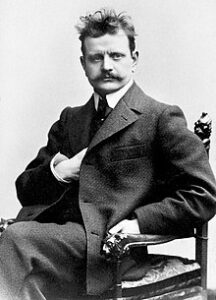 Jean Sibelius was Finland’s best-known composer. This hymn tune is an arrangement of one movement of “Finlandia”, a tone poem written in 1899 depicting the majestic natural beauty of the composer’s native land.
Jean Sibelius was Finland’s best-known composer. This hymn tune is an arrangement of one movement of “Finlandia”, a tone poem written in 1899 depicting the majestic natural beauty of the composer’s native land.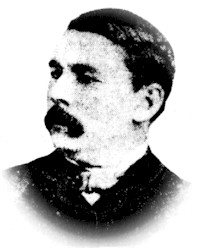 Though this hymn is not considered to be an example of great literary writing, it’s simply stated truths have brought solace and comfort to countless numbers of God’s people since it was first written in 1857. So relevant to the basic spiritual needs of people are these words that many missionaries state that it is one of the first hymns taught to new converts. The very simplicity of the text and music has been its appeal and strength.
Though this hymn is not considered to be an example of great literary writing, it’s simply stated truths have brought solace and comfort to countless numbers of God’s people since it was first written in 1857. So relevant to the basic spiritual needs of people are these words that many missionaries state that it is one of the first hymns taught to new converts. The very simplicity of the text and music has been its appeal and strength.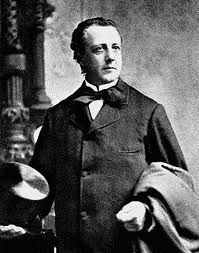 The composer of the music, Charles C. Converse, was well-educated and his talents ranged from law to professional music. Though he was an excellent musician and composer with many of his works performed by the leading American orchestras and choirs of his day, his life is best remembered for the simple music so well suited to Scriven’s text. He composed the tune in 1868 and renamed the poem.
The composer of the music, Charles C. Converse, was well-educated and his talents ranged from law to professional music. Though he was an excellent musician and composer with many of his works performed by the leading American orchestras and choirs of his day, his life is best remembered for the simple music so well suited to Scriven’s text. He composed the tune in 1868 and renamed the poem.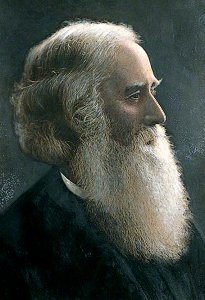 . James Mountain
. James Mountain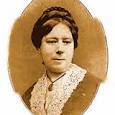 Catherine Winkworth
Catherine Winkworth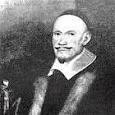 . Johan Cruger
. Johan Cruger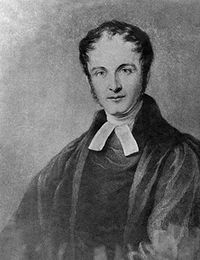 Henry F. Lyte
Henry F. Lyte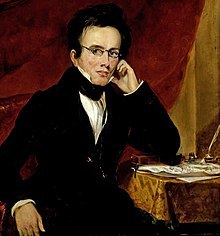 John Goss
John Goss